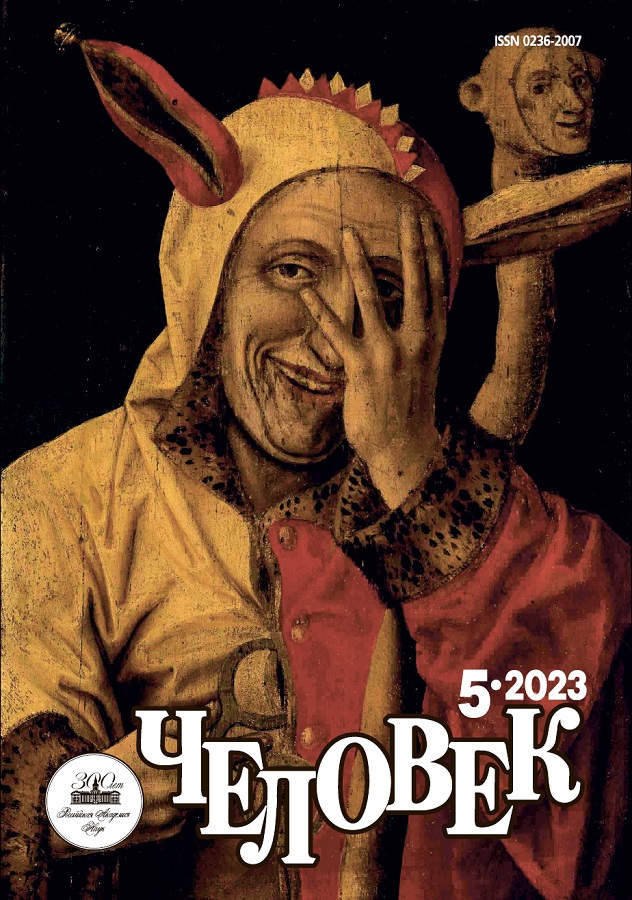Representation of Non-anthropomorphic Consciousness in Science Fiction Literature: Linguistic Fiction, S. Lem, Strugatsky Brothers
- Autores: Sedyh O.M.1, Bogomaz A.V.1
-
Afiliações:
- Lomonosov Moscow State University
- Edição: Volume 34, Nº 5 (2023)
- Páginas: 149-171
- Seção: Symbols. Values. Ideals.
- URL: https://rjmseer.com/0236-2007/article/view/670662
- DOI: https://doi.org/10.31857/S023620070028507-4
- ID: 670662
Citar
Texto integral
Resumo
Since the middle of the 20th century a specific direction, which has gained the status of a serious philosophical (intellectual) fiction prose, has been developing in science fiction literature. Its most illustrative example is the work of Polish science fiction writer Stanislaw Lem (1921–2006). One of the tasks that fantasy writers try to solve by literary means is the representation of non-anthropomorphic consciousness. This task is internally contradictory: it requires one to speak of the nonhuman, which implies going beyond one's own boundaries, alienation from one's own essence. At the same time, since the writer is faced with the need to explore the boundaries of being and thinking, the approaches to its solution amount to the philosophical search. The article discusses the ways of representation of non-anthropomorphic consciousness offered by science fiction, with special attention paid to linguistic fiction (J. Vance, S. Delany, I. Watson, T. Chiang). On the example of the works of S. Lem and Soviet fantasy writers A. and B. Strugatsky, it is concluded that one of the most effective ways is to turn to folklore models, which are embedded in the mainstream of traditions that have developed languages of description of man’s alienation in the context of twentieth-century literature and culture.
Sobre autores
Oksana Sedyh
Lomonosov Moscow State University1, Leninskie Gory, Moscow 119991, Russian Federation
Anna Bogomaz
Lomonosov Moscow State University1, Leninskie Gory, Moscow 119991, Russian Federation
Bibliografia
- Апресян Ю.Д. Идеи и методы современной структурной лингвистики (краткий очерк). М.: Просвещение, 1966.
- Байбурин А.К. Ритуал в традиционной культуре. СПб.: Наука, 1993.
- Вэнс Д. Чудовище на орбите. Языки Пао: Романы, рассказы / пер. с англ. С. Сенагоновой, Е. Смирнова, Н. Заславской. М.: АСТ, 2000.
- Генис А. Три «Соляриса». Ненаучная фантастика [Электронный ресурс]. URL: http://magazines.russ.ru/zvezda/2003/4/gen.html (дата обращения: 10.03.2023).
- Жиловец Ю. Слепое пятно [Электронный ресурс]. URL: http://left.ru/2004/13/zhilovets_lem112.html (дата обращения: 01.03.2023).
- Зеленин Д.К. Очерки русской мифологии: Умершие неестественной смертью и русалки. М.: Индрик, 1995.
- Иванов Вяч. Вс. Чет и нечет: Асимметрия мозга и знаковых систем. М.: Сов. радио, 1978.
- Калашников Н.Н. Сказочное пространство в научно-фантастической сказке С. Ярославцева «Экспедиция в преисподнюю» [Электронный ресурс]. URL: http://www.rusf.ru/abs/rec/kalash02.html (дата обращения: 10.03.2023).
- Карпицкий Н.Н. Понимание границы антропоморфного мировосприятия в философской антропологии и ксенологии // Человек.RU: гуманитарный альманах. 2010. № 6. С. 124–141.
- Лакофф Дж. Женщины, огонь и опасные вещи: что категории языка говорят нам о мышлении / пер. с англ. И.Б. Шатуновского. М.: Языки славянской культуры, 2004.
- Лем С. Так говорил… Лем [Электронный ресурс]. URL: http://rulibs.com/ru_zar/nonf_publicism/lem/7/j0.html (дата обращения: 10.03.2023).
- Лем С. Фантастика и футурология: В 2 кн. Кн. 1 / пер. с пол. С.Н. Макарцева. М.: АСТ, 2008.
- Лем С. Мой взгляд на литературу / пер. с англ. В. Язневича, В. Борисова и др. М.: АСТ, 2009.
- Лем С. Солярис. Эдем. Непобедимый / пер. с англ. А. Громовой. М.: АСТ, 2010.
- Лотман Ю.М. О метаязыке типологических описаний культуры // Избранные статьи. Т. 1. Таллинн, 1992. С. 386–406.
- Мелетинский Е.М. Избранные статьи. Воспоминания. М.: Российск. гос. гуманит. ун-т, 1998.
- Неелов Е.М. Волшебно-сказочные корни научной фантастики. Л.: Изд-во ЛГУ, 1986.
- Неклюдов С.Ю. Образы потустороннего мира в народных верованиях и традиционной словесности // Восточная демонология. От народных верований к литературе. М., 1998. С. 6–43.
- Пропп В.Я. Исторические корни волшебной сказки. М.: Лабиринт, 2000.
- Седакова О.А. Поэтика обряда. Погребальная обрядность восточных и южных славян. М.: Индрик, 2004.
- Сепир Э. Избранные труды по языкознанию и культурологии / ер. с англ. А.Е. Кибрика. М.: Прогресс, 1993.
- Снигирев А.В. «Астронавты» в «Стране багровых туч»: еще раз о проблеме «Стругацкие — Лем» // Уральский филологический вестник. Серия: Русская литература XX–XXI веков: направления и течения. 2015. Выпуск № 2. С. 175–182.
- Стругацкий А.Н., Стругацкий Б.Н. Повести. Собрание сочинений. Т. 7. М., 1993.
- Стругацкий А.Н., Стругацкий Б.Н. Собр. соч.: В 11 т. Т. 6. Донецк, 2004.
- Тодоров Ц. Введение в фантастическую литературу / пер. с франц. Б. Нарумова. М.: Дом интеллектуальной книги, 1999.
- Уотсон Й. Внедрение: Роман / пер. с англ. С. Фролёнка. СПб.: Амфора, 2003.
- Чан Т. История твоей жизни: [сборник: перевод с английского]. М.: АСТ, 2021.
- Keller L. Stanislaw Lem little known. V. 4. N 1. Melbourne: R&S Press, 2021.
- Stockwell P. The Poetics of Science Fiction. London: Longman, 2000.
Arquivos suplementares










